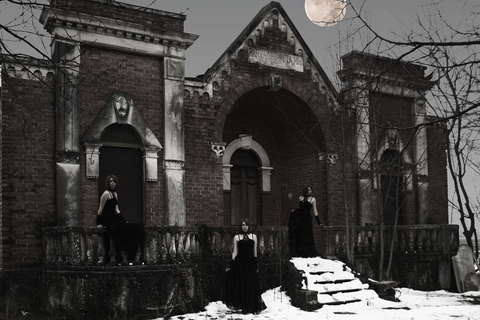How the Classics Influence Today’s Gothic Novels
By Jaime Jo Wright
Our bookshelves are becoming heavier with Gothic tales and mysteries, with hauntings lurking around corners and in dark shadows. We read stories riddled with elements of romance stained with the remnants of spirits left behind. But what inspires these stories?
I’m taken back to the days when the only books I could find in my small-town library with a Gothic air and twist were the classics. Classics whose voices still influence today’s literature, penned by the forerunners—many of them women with minds brave enough to explore the darkness. Jane Eyre and Wuthering Heights are two classics that influence the romantics while appeasing the deeper aspects of foreboding, stories that raise intriguing questions for readers rather than spoon-feed them easy answers. The House of Seven Gables becomes the starting point for haunted houses throughout literary history. Frankenstein tells of monsters made by men, and of men who become monsters.
Without the bravery of such authors, where would our Gothic novels of today be? There’s Edgar Allan Poe, whose words bathe his readers in melancholy and flirt with insanity, and yet his love is evident, etched in all that he penned, hidden between the lines and the inferences for readers to find if they look hard enough. Dickens, too, with his countless pages of literary insights and characterizations, gives us the wild-eyed Miss Havisham as the mistress of all Gothic women, past and present.
Whether you’re an avid reader or a writer of Gothic novels, it cannot be denied that the pioneers of such literature wrote about the world as they saw it, unvarnished. They lived it, breathed it. Men in their time wore black capes and hid their vampire fangs, while women with opium and mercury hid behind pale faces. They scurried down dark alleys and lurked in the secret rooms and halls of their mansions. They published stories and named themselves after men so their womanhood wouldn’t be judged, then refused to go by any name other than their own because they were proud of their feminine wiles.
Without the classics, this genre would be an empty bookshelf, perhaps imagined by someone more current, more modern. Maybe Gothic would be a term for the twentieth-century time period, but it would become an entirely different style, and the legend and lure would have been lost. We’ve much to be grateful for, then, as the Gothic writers of old weren’t afraid to break with convention, to set aside etiquette and allow the daring of their imaginations to take flight. Even now, well into the twenty-first century, the lingering voices of the classics continue to echo through our libraries, inform our thinking, and breathe life into our current fiction. The authors are no longer with us, but their stories live on.

